The rise of MOOCs¶
Higher education is now being disrupted; our MP3 is the massive open online course (or MOOC), and our Napster is Udacity, the education startup.
— Shirkey, 2012
The fall of MOOCs¶
Compared to formal learning, there tends to be much higher rates of drop-out, and steeply unequal patterns of participation. This is probably an almost-inevitable consequence of any open, online activity. [...] The phenomenon shows that MOOCs alone cannot replace degrees or most other formal qualifications.
— Clow, 2013
Questions¶
- What completion rates should we expect?
- Can we raise MOOC completion rates?
- Can we raise traditional completion rates?
Q1. What completion rates should we expect?¶
A: Most people are sampling¶
- Learner subpopulations in MOOCs.
Kizilcec, Piech & Schneider, 2013 - Dataset: 94,000 student activity logs from 3 Coursera courses

Example trajectory: $[T, T, T, T, T, B, A, A, A]$
Q2. How do we raise MOOC completion rates?¶
A1. Students watch short, well-produced videos¶
- How Video Production Affects Student Engagement: An Empirical Study of MOOC Videos. Guo, Kim & Rubin, 2014
- Dataset: 6.9 million viewing sessions from 4 edX courses
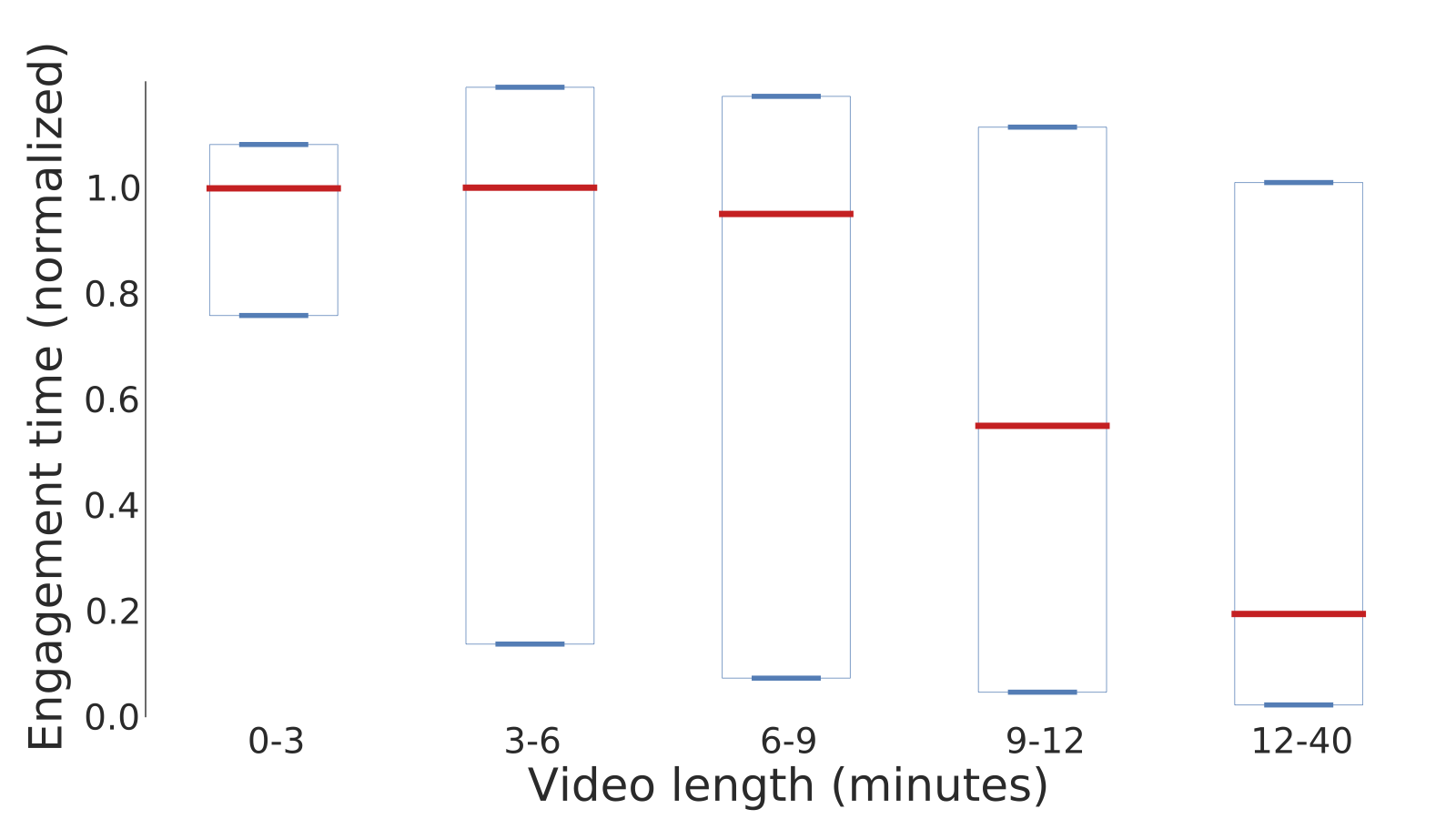
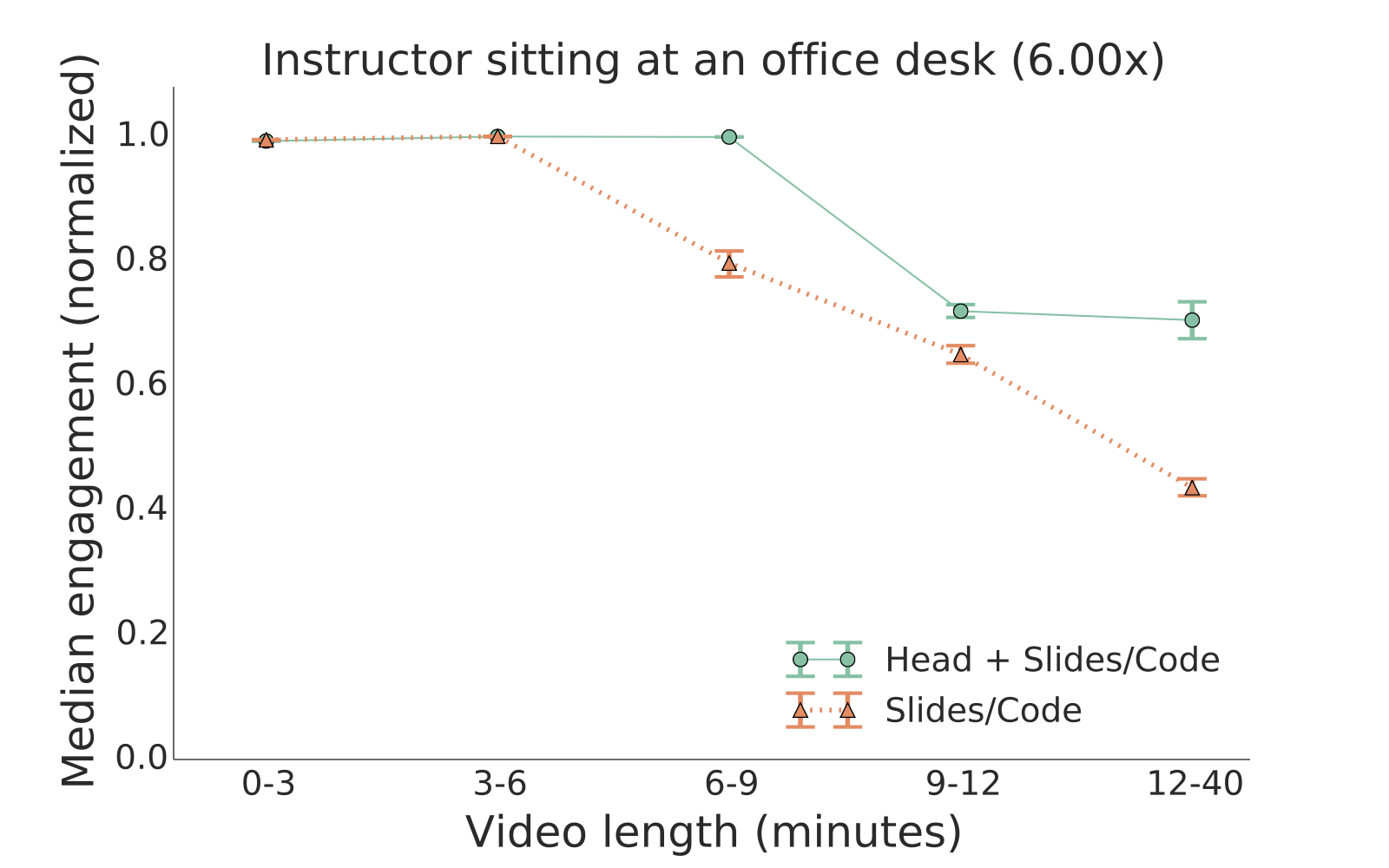
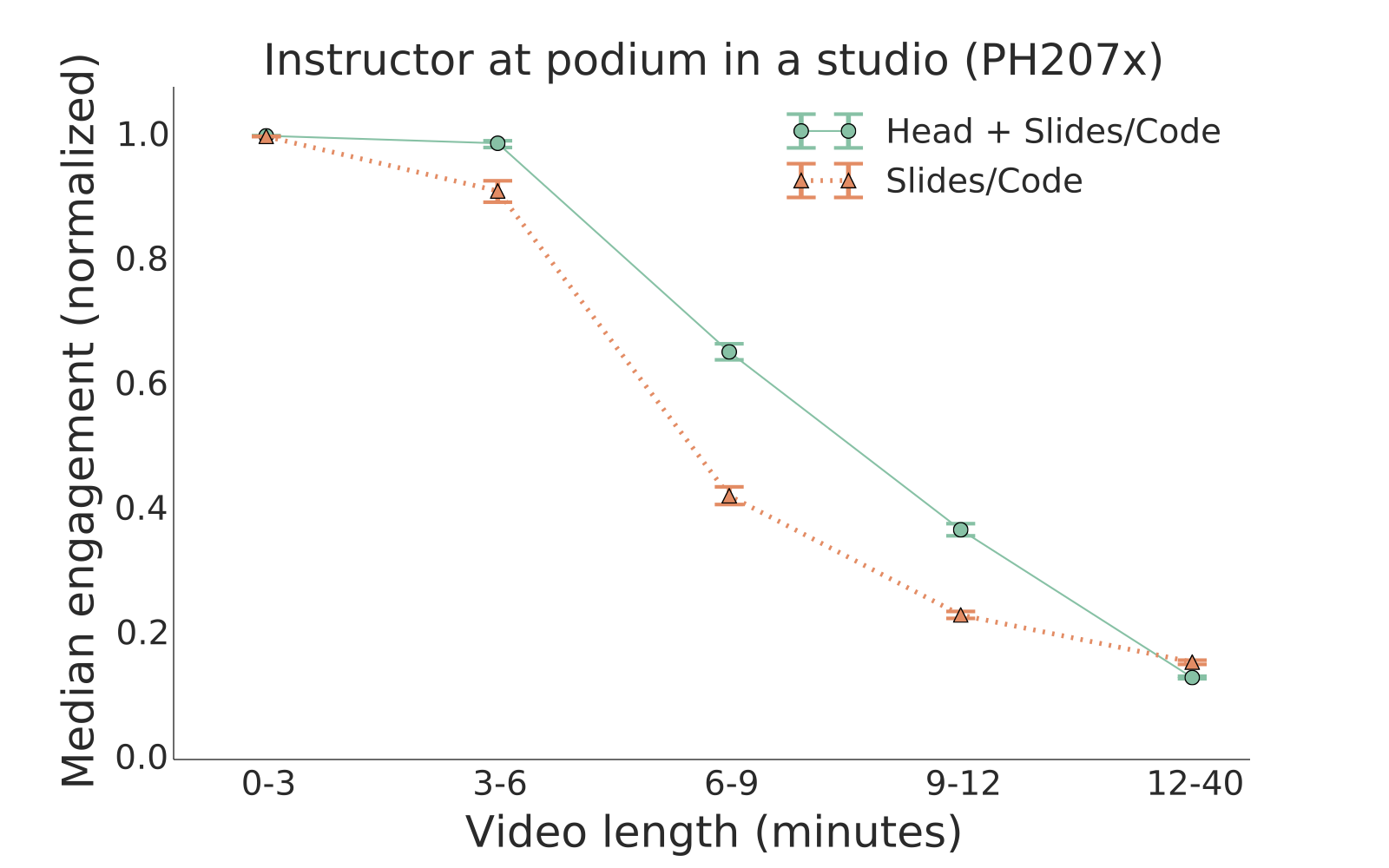
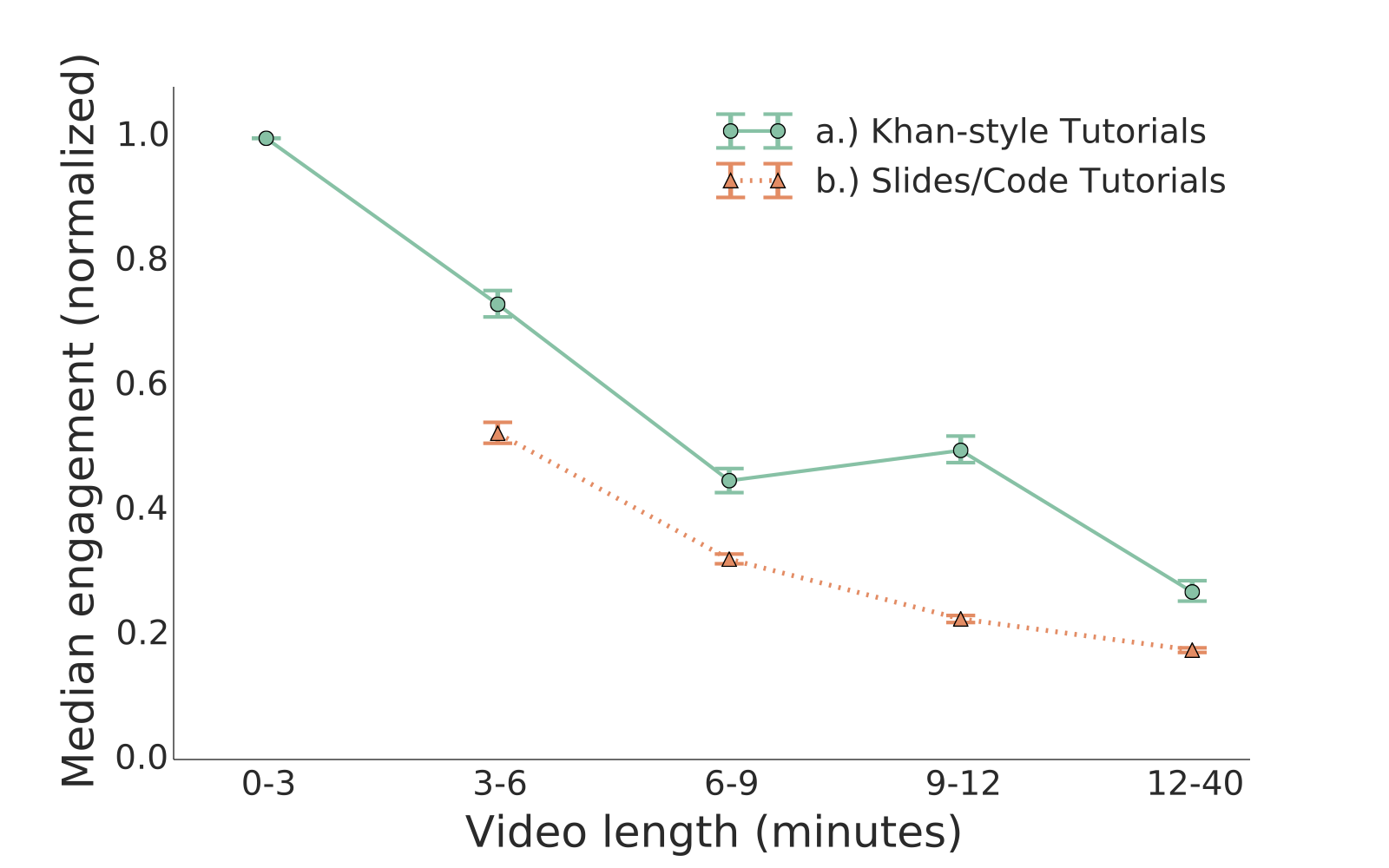
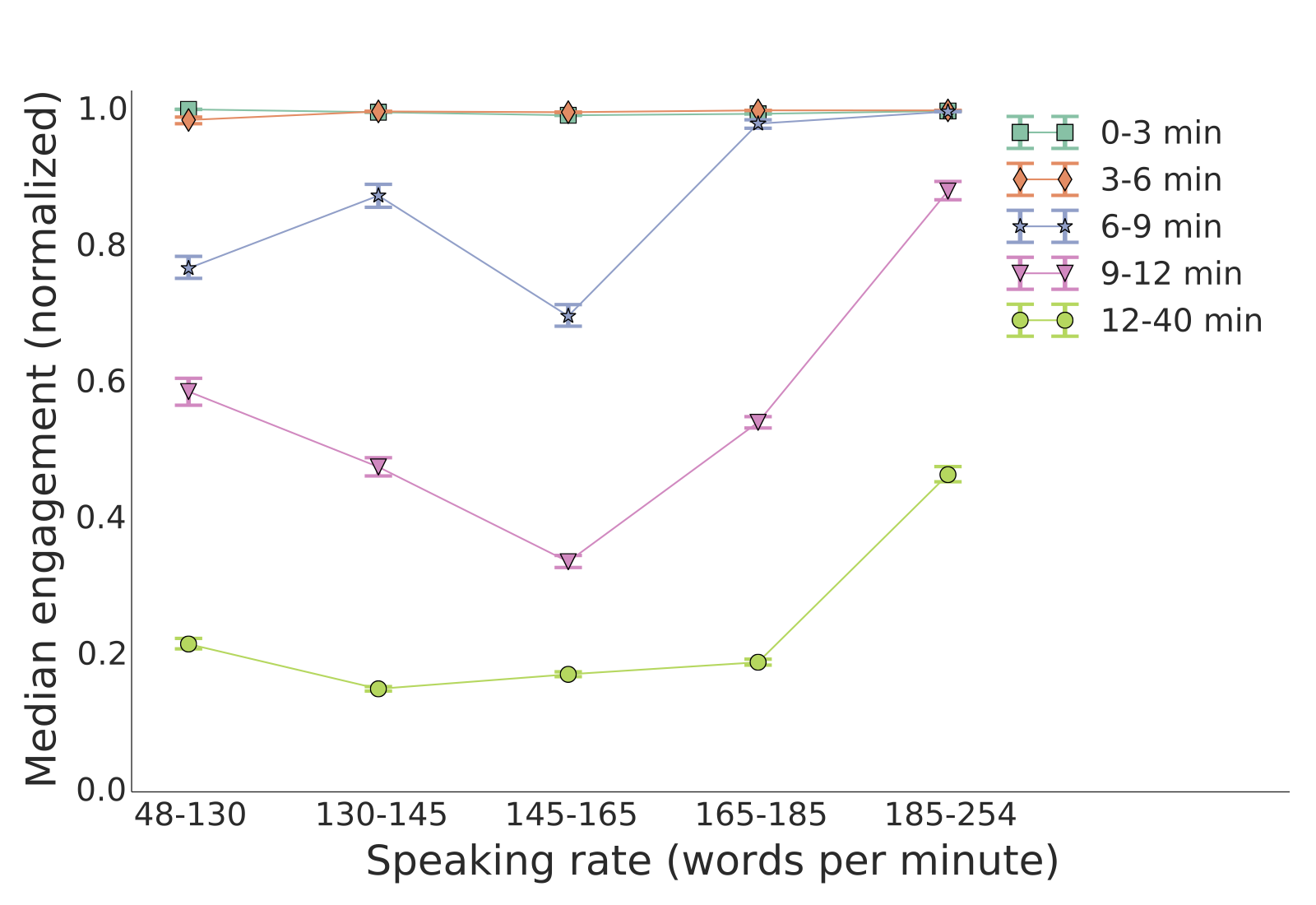
A2: Superposters foster healthy forums¶
- Superposter behavior in MOOC forums.
Huang, Dasgupta, Ghosh, Manning & Sanders, 2014 - Dataset: 325,000 posts from 44 Coursera courses
Q3. Can we raise traditional completion rates?¶
- Are all in-class students "completing"?
- 6-minute lectures before interactive classes.
- Provide an ignorable outlet for "superposters".
Recommendations¶
Teach data literacy
to education researchers
It was surprising to see a low number of proposals that had planned to make use of the techniques and methods of learning analytic and educational data mining (LA/EDM).
[...] Our results indicate that the MRI review panel expressed a strong preference towards the use of the LA/EDM methods.
— Gašević, Kovanović, Joksimović & Siemens, 2014
Discuss the ethics
of huge data collection
Enrolled learners in a MOOC are potentially all over the world and therefore are likely to have different cultural and personal sensitiveness about privacy issues. [...] Learners might feel violated if they saw their posts de-contextualized and highlighted in a publication.
— Esposito, 2012
Follow up
with qualitative studies
It does not require trillions of event logs to demonstrate that effort is correlated with achievement. [...] The next generation of MOOC research needs to adopt a wider range of research designs with greater attention to causal factors promoting student learning.
— Reich, 2015